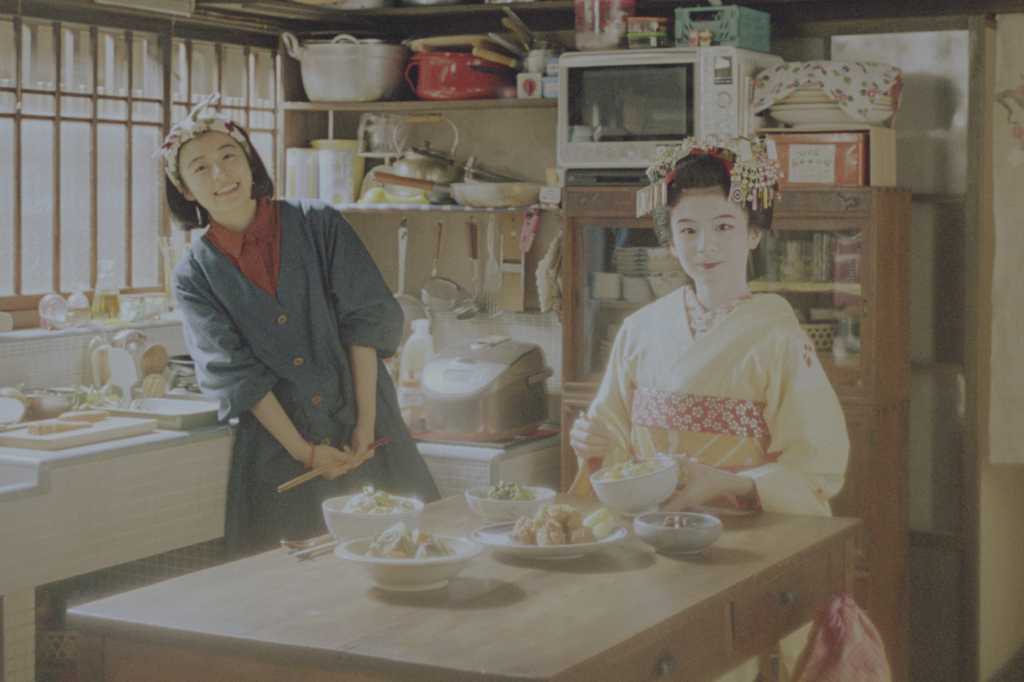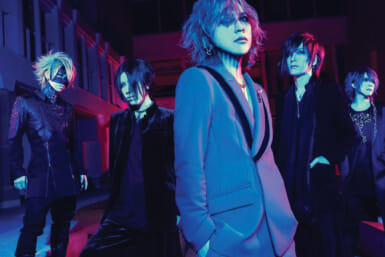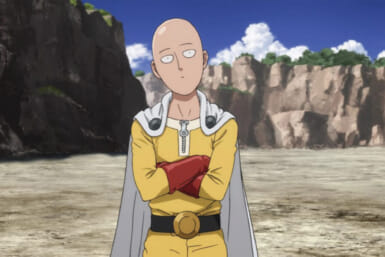You have watched all the seasons and movie specials about Shinjuku’s Midnight Diner, the theme song of Solitary Gourmet is constantly playing in your head (and driving you insane), and you still crave more Japanese TV shows about food, cooking and eating? Here are seven choice cuts from the big heap of food dramas that haven’t been as well documented as Master’s late-night life lessons or Goro Inogashira’s business lunches.
1.
The Makanai: Cooking for the Maiko House
There has been suspiciously little buzz about Hirokazu Koreeda’s The Makanai: Cooking for the Maiko House before its debut on January 12. We’re here to correct that and recommend you watch the new exclusive show by the director of international arthouse hits and award-winners such as Shoplifters and Like Father, Like Son. Adapted from an ongoing manga series by Aiko Koyama, the story follows a young girl who becomes a cook at the living quarters of maiko (apprentice geisha) in Kyoto. The trailer looks lush and mouth-watering enough to give this a try. You’ll learn both about Japanese food and the surviving geisha culture.
2.
The Way of the Hot and Spicy
Akito Kiriyama plays Kenta Sarukawa, a somewhat inexperienced beverage salesman who transfers from Osaka to Tokyo, where he meets professional and culinary challenges. Often those are connected since his eccentric coworkers like to indulge in highly spicy food as a motivation for tackling difficult clients (to whom they also assign spice levels). In contrast to Solitary Gourmet, Gourmet Samurai or Bullet Train Bistro, which deal with culinary loners, The Way of the Hot and Spicy is a bit of an ensemble show. The focus may be on Sarukawa, but his colleagues, love interests and clients often shape the story.
While this is not exactly an intricate drama with dizzying character arcs, the characters will grow on you just as the broadly drawn regulars at the counter of the Midnight Diner did. Since Japan is not famous for its hot and spicy cuisine per se (exceptions surely apply), Sarukawa and his colleagues regularly visit foreign restaurants. Still, their professional challenges are often uniquely Japanese. One episode sees the protagonist joining a karate school, despite his traumatic history with martial arts, to gain the owner’s trust and business. In another one, he must win over the owner and working ladies of a hostess club.
3.
Bullet Train Bistro
Unless you are trapped in an American action movie, you will find that bullet trains don’t actually have bistros. You are allowed, almost encouraged in fact, to bring your own food. And that’s what Susumu Takamiya (played by Hidekazu Mashima) does. He is a traveling businessman much like Inogashira from Solitary Gourmet, but he travels much farther, always by shinkansen. On his trips, he not only conducts business but also loads up on local delicacies and alcoholic beverages to consume on his way home (hence the title). He then shares his experiences with family members and other foodies via modern mobile communication technology.
While Bullet Train Bistro is categorized as a drama, hardly anything dramatic ever happens, and that’s just fine. It’s the perfect antidote to, say, Alice in Borderland. Occasionally, the married salaryman will be tempted by a local woman. In the end, however, local food and drink will always prove more tempting.
4.
What Did You Eat Yesterday?
Based on a popular manga, What Did You Eat Yesterday? offers a glimpse into the life of middle-aged couple Shiro, an attorney, and Kenji, a hairdresser. While Kenji is open about his sexuality, Shiro likes to remain at least partially in the closet — a source of tension and occasional cause for disputes between the two. Food doesn’t solve everything, but the dinners Shiro cooks provide opportunities to talk about their issues, or to deflect them. Despite its laudable attempt to show the life of a gay couple without sensationalism, voyeurism or gay tropes, What Did You Eat Yesterday? is in many ways old-school Japanese television: the drama manifests as over-acted hissy fits. It’s the well-drawn characters and likable cast, however, that will make you come back for more. And, yes, there are recipes.
5.
Rokuhoudou: Colorful Days
Rokuhoudou is the name of a traditional teahouse run by four young men of above-average looks, all played by talent from Japan’s infamous Johnny & Associates talent agency. They serve Japanese sweets and European coffee specialties, happily mixing French and Italian phrases while doing so. Needless to say, they often help their troubled guests with more than just fulfilling their orders. Rokuhoudou: Colorful Days is a moderately paced, easygoing show blending Japanese Zen mentality and European joie de vivre. Or was it dolce vita?
6.
The Curry Songs
Yoichiro, a young homeless man, and Nita, a shy college student and aspiring artist, meet by chance and bond over curry dishes. There is, however, more to the plot than just curry. We witness Nita slowly finding his place in the world, and we get behind the secrets of how Yoichiro found his.
It’s streaming on Hulu Japan and other domestic services, but at the moment without non-Japanese subtitles.
7.
My Imaginary Meal to be Praised
Masao Wada is an office worker by day, a bass player by night, and always single. Dreaming of imaginary girlfriends, he has a habit of accidentally cooking for two, then imagining eating with female company, be it a woman he saw at a gig or a coworker. Frankly, Masao’s admission that his behavior is ‘creepy’ doesn’t really dispel the notion that it actually is. But let’s not talk about Masao. Even if you don’t understand a word, you can admire the nicely photographed produce being cut and cooked into submission. Whether you’re into food or cinematography, it’s a joy to watch. Win-win if you love both.
It’s streaming on Hulu Japan and other domestic services, but at the moment without non-Japanese subtitles.









